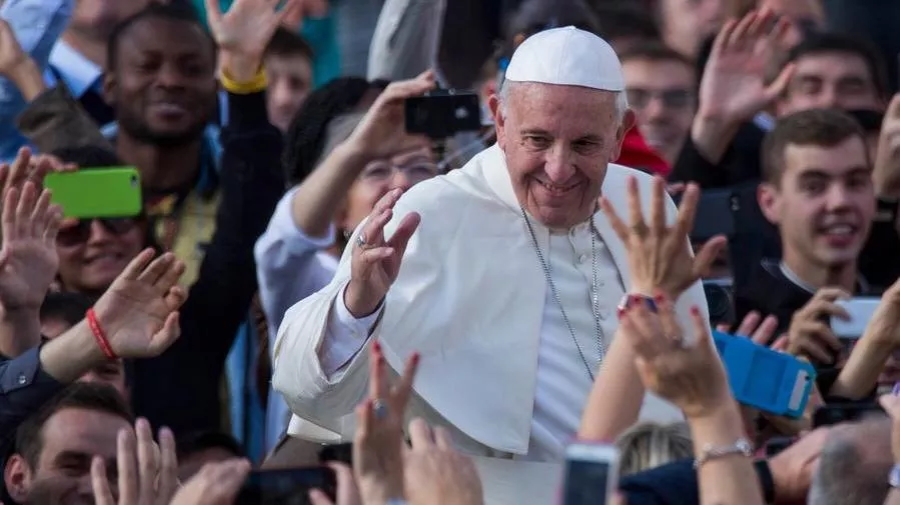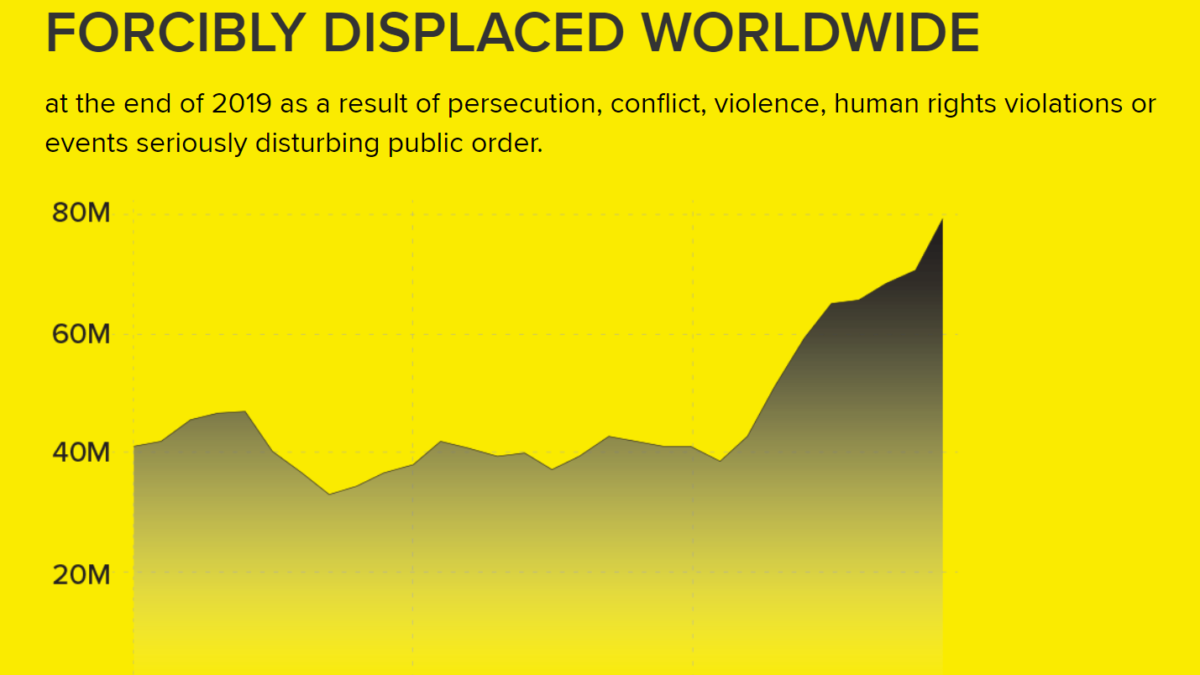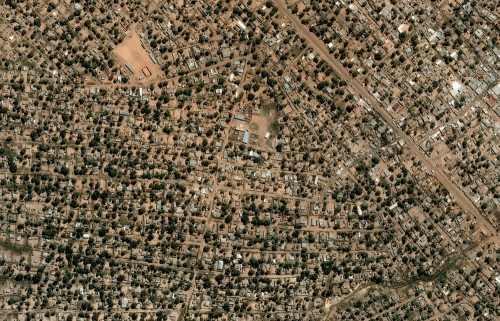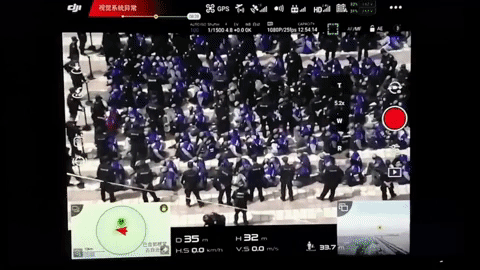Pope Francis again warns against nationalism, says recent speeches sound like “Hitler in 1934”, fears “devastation of nature that can lead to the death of humanity”
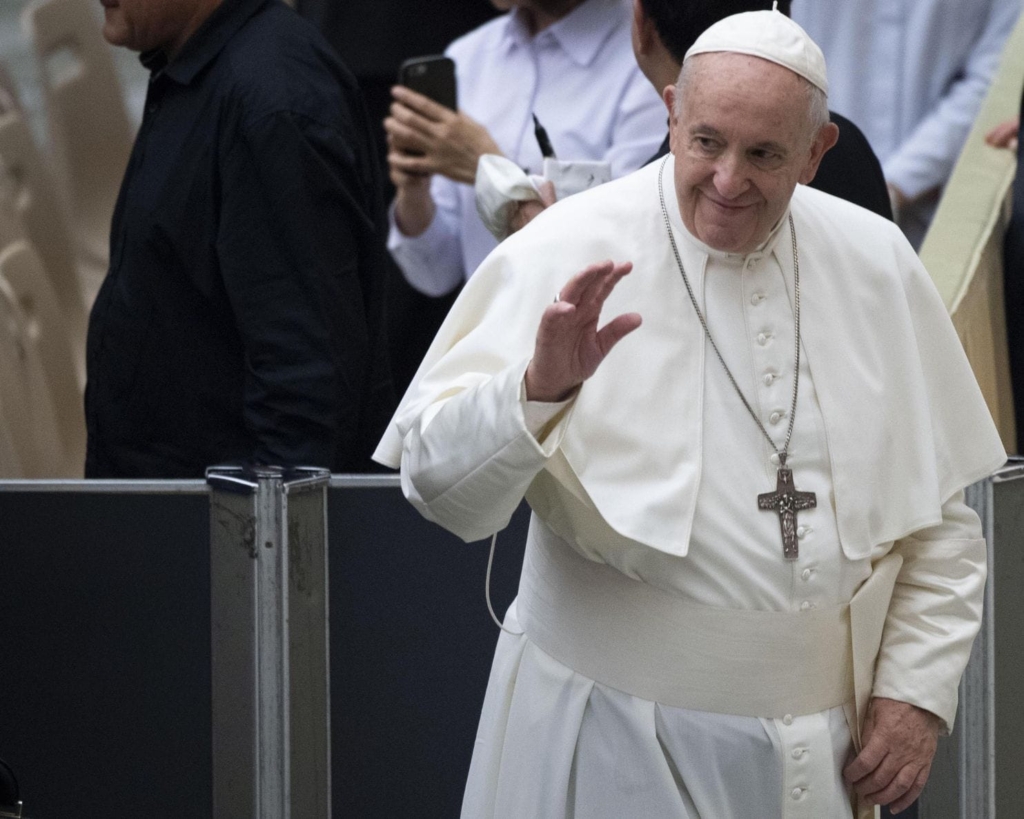
By Siobhán O’Grady
9 August 2019
(The Washington Post) – Pope Francis called for a united Europe in an interview published by Italian daily La Stampa on Friday, saying recent political rhetoric has echoed that of Nazi Germany.
“I am concerned because we hear speeches that resemble those of Hitler in 1934,” he said. “ ‘Us first. We … We … ’ These are frightening thoughts.”
It is not the first time the pontiff has made such remarks, but his comments published Friday came as Italy’s populist government appeared to be on the verge of collapse.
On Thursday, Deputy Prime Minister Matteo Salvini, the most powerful politician in Italy, called for parliament to be dissolved and asked President Sergio Mattarella to order snap elections that could make Italy’s government lean even further right. […]
As leader of the League party, Salvini, who also serves as interior minister, has hammered home rhetoric that has drawn comparisons to that of President Trump, calling for Italians to put Italy first and launching a crackdown on immigration.
He has banned migrant rescue ships from docking in Italy and shut down a migrant center in Sicily that was once one of the largest in Europe. Earlier this year, Salvini accused the captain of a humanitarian rescue ship carrying migrants of “an act of war” after her ship hit a police boat by the pier. […]
In the interview Friday, Francis called for migrants to be integrated into society and said nationalism is an “attitude of isolation.”
He has repeatedly expressed concern over what he sees as a rising tide of populism. [more]
Pope Francis again warns against nationalism, says recent speeches sound like ‘Hitler in 1934’
Papa Francesco: “Il sovranismo mi spaventa, porta alle guerre”
By Domenico Agasso, Jr.
9 August 2019
VATICAN CITY (La Stampa) – The Pope opens the door on time at 10.30, with his kind smile. Enter one of the rooms you use to receive people, furnished with the essential, without distractions or luxuries, just a crucifix hanging on the wall. We arrived from the entrance of Perugino, the closest to Casa Santa Marta. Habitual scenario: some cassocks, gendarmes and Swiss guards. In the background, the Dome of St. Peter. In the Vatican the usual routine is slowed by the heat and the holiday climate. For Pope Francis it is not an ordinary day: it is August 6, the 41st anniversary of the death of Saint Paul VI, a pontiff to whom he is particularly fond: “On this day I always look for a moment to go down to the Caves under the Basilica – he will reveal – and stand alone in prayer and silence before his grave. It is good for my heart ». The pleasantries do not last long, in a moment we are in the middle of the conversation. [Translation by Google. –Des]
Francesco is cheerful and relaxed. Is focused. His listening skills are impressive. Always look into the eyes. Never the clock. Take the necessary breaks before giving a delicate thought. Talk about Europe, the Amazon and the environment. The interview is intense and uninterrupted. The Pope does not even drink a sip of water. We point this out to him, he shakes his shoulders and answers, smiling: “I’m not the only one who didn’t drink”. […]
What are the dangers of sovereignty?
Sovereignty is an attitude of isolation. I am worried because we hear speeches that resemble those of Hitler in 1934. “First we. We … we … “: these are scary thoughts. Sovereignty is closure. A country must be sovereign, but not closed. Sovereignty must be defended, but relations with other countries and with the European Community must also be protected and promoted. Sovereignism is an exaggeration that always ends badly: it leads to wars.
And populism?
Same speech. At first I struggled to understand it because studying Theology I deepened the popularity, that is the culture of the people: but one thing is that the people express themselves, another is to impose the populist attitude on the people. The people are sovereign (they have a way of thinking, expressing themselves and feeling, of evaluating), instead populisms lead us to sovereignties: that suffix, “ismi“, is never good.
What is the way to go on the topic of migrants?
First of all, never forget the most important right of all: the right to life. The immigrants arrive mainly to escape from war or hunger, from the Middle East and from Africa. On the war, we must engage and fight for peace. Hunger mainly concerns Africa. The African continent is the victim of a cruel curse: in the collective imagination it seems to be exploited. Instead, part of the solution is to invest there to help solve their problems and stop migratory flows.
But since they come to us how should we behave?
Criteria must be followed. First: to receive, which is also a Christian, evangelical task. Doors must be opened, not closed. Second: to accompany. Third: promote. Fourth integrate. At the same time, governments must think and act prudently, which is a virtue of government. Who administers is called to reason on how many migrants can be received.
And if the number is greater than the possibilities of reception?
The situation can be resolved through dialogue with other countries. There are states that need people, I think of agriculture. I saw that something like this happened recently in front of an emergency: this gives me hope. And then, do you know what it would also be useful for? […]
But why concentrate on the Amazon?
It is a representative and decisive place. Together with the oceans it makes a decisive contribution to the survival of the planet. Much of the oxygen we breathe comes from there. This is why deforestation means killing humanity. And then the Amazon involves nine states, so it’s not a single nation. And I think of the richness of the Amazon, vegetable and animal biodiversity: it is wonderful. […]
Your Holiness, what do you fear most of all for our planet?
The disappearance of biodiversity. New lethal diseases. A drift and a devastation of nature that can lead to the death of humanity. [more]
Papa Francesco: “Il sovranismo mi spaventa, porta alle guerre”
